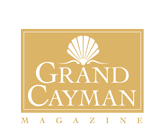Recently, the Cayman Islands have received an inordinate amount of attention in the international press. It seems as though this attention is taken more seriously by those outside Cayman than by those who live here. Turning inward, when under attack from outside, however, is a most-dangerous reaction.
Unfortunately, the common perception of the Cayman Islands by those who reside beyond our shores is negative. The fact that this generalization is clearly unwarranted does not make it any less lethal.
The broader world in which Cayman exists finds its own traditional moorings being uplifted. Rapidly changing international political, governmental, legal, and social constructs, which contributed to our collective sense of being “in control” are routinely being redefined, if not overthrown. Who, for example, had even heard of ISIS three years ago?
How will Cayman navigate in these increasingly unfamiliar and tumultuous times?

Global Realities
However, for the purposes of this article, let’s narrow our focus to financial services, since that sector – and Cayman’s future – are so inextricably intertwined. To come to grips with the world in which Cayman lives, we would be wise to pay attention to the late Canadian communications guru, Marshall McLuhan, who put it famously, “the medium is the message.”
Telecommunications, computing, and electronic media have made information a public commodity, including information that was once easy to keep private.
While some consider this an affront to our personal and organizational right of privacy, many more see it as keeping people and organizations – corporations, non-governmental organizations, not-for-profits, charities, and governments – transparently accountable and responsible to society for their actions.
Cayman’s financial industry, let us not forget this, was built upon the principle of personal privacy and legitimate confidentiality – and that world is now under serious political and regulatory attack.
Governments around the world are evaluating how to meet the demands of their constituents with the revenues they receive through taxes. Political realities have made it more difficult to continue to cut government spending, so attention has turned to raising tax revenues.
A common international political sentiment – rightly or wrongly – is that Cayman offers corporations and individuals the opportunity to avoid paying taxes in their home country. It is increasingly evident that influential political figures from across the political spectrum are linking Cayman – and not in a good way – to their own inability to finance the services their constituents are demanding.
While many Caymanians believe they are in the “driver’s seat” when it comes to their own economic future, at best they are in the passenger seat, more likely the back seat. Which raises the question: How can Cayman regain control of its economic destiny and navigate its way to continued prosperity?
Insights from Adam Smith
While Adam Smith is best known for his masterpiece first published in 1776 – An Inquiry into the Nature and Causes of the Wealth of Nations (now more commonly, known as The Wealth of Nations) – the insights offered in his esteemed book of 1759 – The Theory of Moral Sentiments – is more instructive.
The Theory of Moral Sentiments is comprised of the transcripts of lectures Dr. Smith (a professor of moral philosophy) made to 14- to 16-year-old students who were the sons of powerful Scottish aristocrats. A group of influential fathers wanted Dr. Smith to provide their sons with the insights they would need to be successful in what, they believed, would be a world governed by forces that were very different from what they had experienced.
Dr. Smith conveyed to these boys that in what he called a “society of perfect liberty,” the powers inherent in aristocratic society would be diminished by the forces of competition where power only came from identifying market opportunities and productively pursuing them.
Applying this to Cayman today, it is the young people of Cayman who most need to understand the realities of their time. The driver of Cayman’s future will be these well-informed, young people, solidly grounded in the realities of a competitive, international economy from which Cayman’s prosperity will be derived.
Dr. Smith’s message is rooted in one, almost religious, insight: One must begin with the acceptance that self-interest must be sublimated to looking first and foremost for opportunities to meet others’ needs. Putting the needs of others ahead of one’s own ensures enduring economic success, Dr. Smith taught.
While a generation of business leaders (“Greed is good”) have reversed Smith’s prescription for economic success – putting self-interest ahead of the needs of others – all indications are that the emerging political, governmental, legal, and media forces are returning us to Smith’s basic principle.
Looking back more objectively, we can easily see that those who have had true economic success have followed Smith’s primary insight. Bill Gates, for example, became wealthy by providing the users of personal computers with an effective, powerful, and affordable operating system. He met their needs and in so doing, secondarily, met his own needs.
Conversely, Bernie Madoff put his own self-interest ahead of his clients and had little sympathy for what he did to others. He violated Smith’s inviolate principle.
Waves of Change
The economic success that Cayman has experienced over the last four decades is a product of socially created structures, not something given to us by nature or gifted to us through the divine. Without clearly established laws and regulations that are in place to serve the greater interests of society, Cayman’s financial sector would not exist at all. However, social structures are fickle – they work to our advantage in one era and to our disadvantage in another.
For Cayman this means that in a time of transformation, the “rules of the road” change and believing those rules of the past will not apply to us is, frankly, both naïve – and dangerous.
The change in international political sentiments around increasing tax revenues, the concerns of investors, shareholders, and stakeholders around issues of transparency and accountability, and the inevitable public scrutiny that comes with technological advances in investigations and media are the new rules of today. Most importantly, they are being made outside of Cayman.

Opportunities and Threats
The inevitable changes that will effect Cayman can either be seen as threats to Cayman’s status quo, or opportunities for change and a new, but different, wave of progress.
The first step is for Cayman to accept that change will happen, indeed is happening – and it is change that we have little control over. The second step is for us to seek out how we can best meet the needs of others, outside Cayman.
The empathetic, and ultimately successful, observer will see opportunities, not threats, in the changes that are coming. Finding new ways to build on Cayman’s strengths to serve the needs of others, globally, will determine whether Cayman will continue to be a small thriving country in a big economic world, or slip into decline, relentlessly grasping onto the past.
The unfavorable international attention that Cayman has received recently has not been effectively responded to. While our tendency might be to look inward rather than outward, it would be far better to engage openly in the international discussion, demonstrating at the least that Cayman is willing to address their concerns and work with them to find solutions that will be, first, good for others, and secondarily beneficial for Cayman.
We’ve already cited two wise men in this article – Marshall McLuhan and Adam Smith. A third, Warren Buffett, deserves a mention:
In addition to embracing Dr. Smith’s prescription for sustained success – putting the greater good ahead of personal good – Mr. Buffett adds the essential ingredient of integrity which must be incorporated into the DNA of Cayman’s economic future. He enumerates three essential qualities that individuals, businesses and, yes, countries, must possess for sustained success: Integrity, intelligence, and energy.
Note that he puts integrity first and adds, “If you don’t have the first, the other two will kill you.”



















